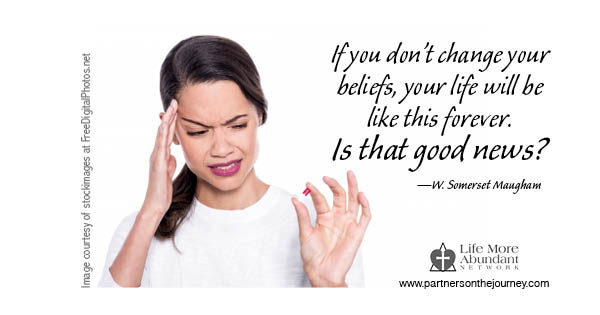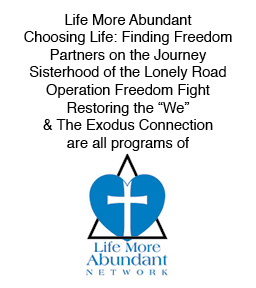Each of us has a personal set of rules we live by. That’s good! They provide a type of framework, or code of ethics, for our lives. What isn’t good, however, is that, for most of us, the majority of those rules are based on lies.
Did you catch our earlier post about this? If not, pop over HERE and discover:
- Where those lies come from
- Why we can’t let go of them
- How we can determine what they are
HAVE YOU BEEN LISTENING TO YOURSELF?
What beliefs have your words revealed?
Did you call yourself any unflattering names like “loser,” “fatso,” or “clutz?”
Did you hear yourself put limits on your potential in your head or out loud? They might have been phrases like “I’m not smart enough,” “I would never be able to do that,” “Nothing ever works out for me.”
Did your imagination put words in other people’s mouths? “She hasn’t called back, she must be mad at me,” “Nobody likes me,” “He’s just doing this to hurt me.”
All of these shine a light on our beliefs about ourselves. We also have beliefs about other people, or groups of people, government, what is and isn’t acceptable behavior, how we can best survive the rough spots in life, and hundreds other things.
TWO TYPES OF BELIEFS
Some of those beliefs are “true” beliefs. Those are the ones that align with God’s word and create positive emotions. They leave us feeling encouraged, valuable, connected to others, and full of hope, purpose, and motivation. We don’t want to change those beliefs. They are God’s truth.
Far more of our rules, however, stem from “false beliefs.” They create negative emotions and make us feel inferior, flawed, worthless, ashamed, anxious, hopeless, or helpless.
Negative emotions feel ugly. We don’t like them, so we work hard to find ways to reduce or eliminate them. We run away, get super busy, numb out, or lash out at others—anything that will help us distance ourselves from those feelings. With practice we can get so skilled at avoiding them that we may not even realize they are there, lurking under the surface. We may begin to see our coping behaviors as the problem, instead of merely a symptom of our flawed beliefs.
LEARN TO QUESTION
There is always a reason behind the things we do and the ways we react. It’s not because we were “made that way.” It’s not because we’re uniquely flawed or especially sinful. It’s because some of our core beliefs were formed out of the lies we were told or our own misinterpretations about life. They aren’t true, but we’ve lived with them so long that they feel true to us. We didn’t realize they were wrong or that they could be changed, so we have slogged through life with rules that have been dragging us down.
Become aware. Study yourself. When you feel particularly strong emotions rising or numbness settling in, don’t just ignore them. Use them as an opportunity to explore their source. Questions like the ones below can often help you begin to uncover your beliefs more fully and, perhaps, even how they began.
- What just happened?
- What emotion did that situation bring up?
- Have you ever felt this feeling before?
- Has someone else ever make you feel this way? Who?
- What was going on the first time you remember feeling like this?
- Did that situation create or reinforce a belief about yourself or the way life works
When the belief was originally created it may have been true in a specific situation. Our mistake was in adopting it as universally true.
HOW DO YOU DETERMINE WHAT IS REALLY TRUE?
Truth is always true. False beliefs may hold a fragment of truth in certain situations, but they aren’t universally true. At best they are partial truths. Unfortunately, once our brain has accepted a false belief as truth, it blinds us to everything that would contradict it.
Because of this blindness, it is prudent to enlist a counselor, pastor, or trusted friend to help you uncover the real truths. As you become aware of your false beliefs there are a number of ways to get to the real truth:
- Pray and ask God to reveal the truth to you in a very undeniable way.
- Find scripture in which God seems to contradict your false belief.
- Discuss the situation in which your belief was originally created with a friend or counselor. Determine, together, whether there could be any other explanation for what occurred or was said other than what you previously concluded. These “other meanings” are usually closer to the actual truth.
Until you begin to probe and question, most false beliefs live in your subconscious. As you become increasingly able to acknowledge them, you can begin to ask God to substitute His truth for the damaging falsehoods you have believed. The consistent repetition of truth will eventually create new true beliefs that will overwrite the old rules and subsequently change your reactions and behaviors.
“Then you will know the truth and the truth will set you free.”
—John 8:32 (NIV)
TODAY’S CHAT: How have you historically avoided the negative emotions that false beliefs create? What would be the best part of not having to do that any more?



Leave A Response